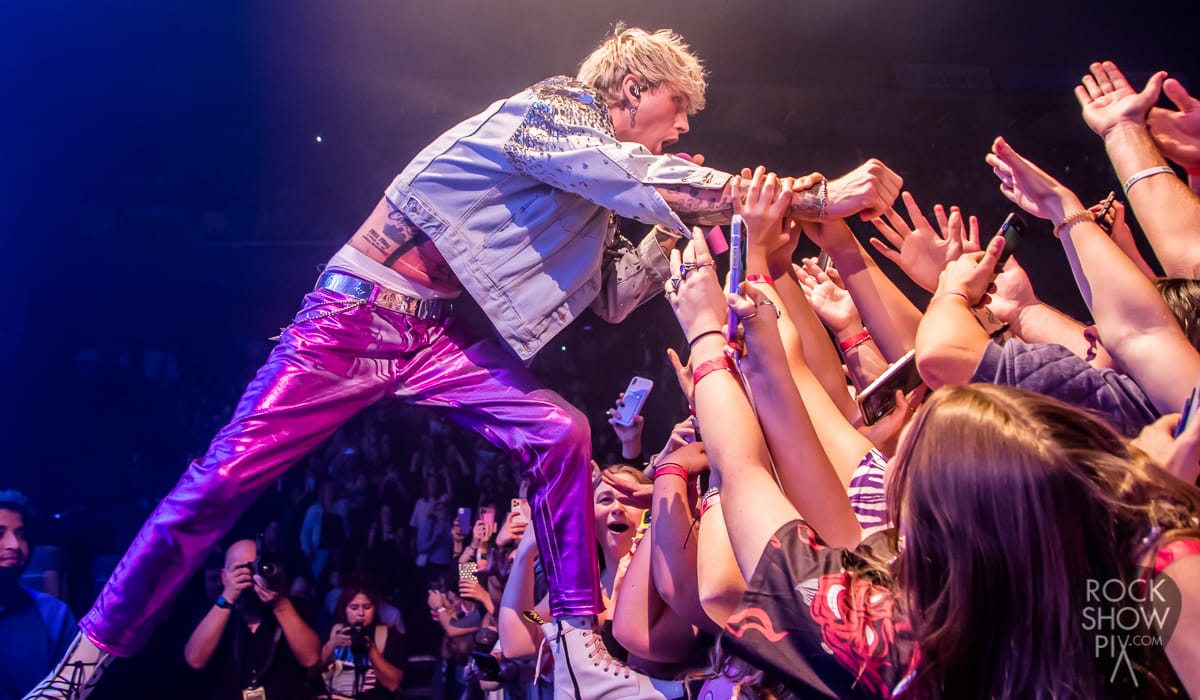
Seth Shapiro was in high school when he started to experiment with photography. This was before digital became ubiquitous, so Shapiro would shoot on film and develop it in a dark room.
Years later, the camera now gets Shapiro access to one of the most exclusive spots in the music industry: the photo pit.
Read about Shapiro's time as a concert photographer capturing some of the industry's greatest, including Tom Petty, Cher and Madonna.
This interview has been edited for style and clarity.
When you walk into a venue how do you scope out what you're going to do for a show?
I always get to the venue for the opener so I can get an idea of how tall the stage is, or if it's a narrow pit, or if there's a deeper pit, if you're shooting from the soundboard.
When the house lights go off, everything changes.
We could have 10 people in the pit and everyone wants to go to the right side of the stage for a shot. I'll stay on the left. A lot of times I prefer to shoot from back and left — you get more of a view of the stage and just a wider perspective of everything that's going on.
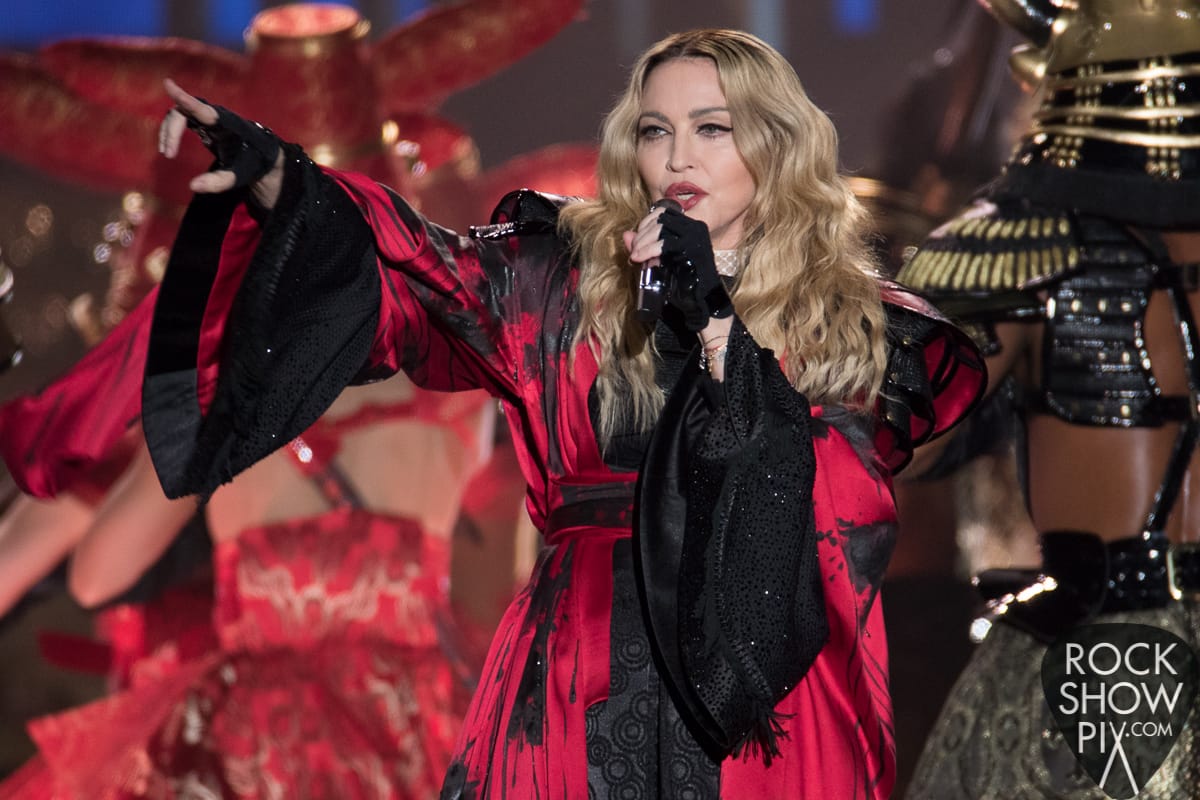
When you leave a show how do you know you're satisfied with what you've got?
I don't know if I'm ever truly satisfied with what I've got until I get home and start looking through them.
There are definitely moments where I've gotten a picture and I've been like, 'Oh my god, I'm done. I don't have to take any more pictures tonight, that's the one.'
The nice thing with digital is you don't have to wait, but I do miss that too. With film, you had the suspense and the build-up of, 'Oh my god, I think I got this perfect picture, but I don't know until I develop it,' and with digital you get that instant gratification.
There's been a few occasions where I've taken a picture and just known it's perfect. I almost want to leave right then and run home to make sure it is, but it's hard to get a perfect shot. There's always something that could be improved.
Sign up for Hollywood Rebound
The art behind entertainment.
No spam. Unsubscribe anytime.
You say on your website that "you should capture the moment, not edit the memory." Tell me about your philosophy there.
I don't Photoshop any of my pictures. I'll do a little bit of color correction or light balancing, but other than that I truly believe that that you're capturing a moment in time and you should capture it as it was.
I'm not knocking other people — I've seen some great stuff that people do with with crystals, they add different things to [the picture], and now with AI ... That's a whole other level of editing that you can do.
I'm kind of a purist because I shot film and you really didn't get to manipulate anything other than shading and tones.
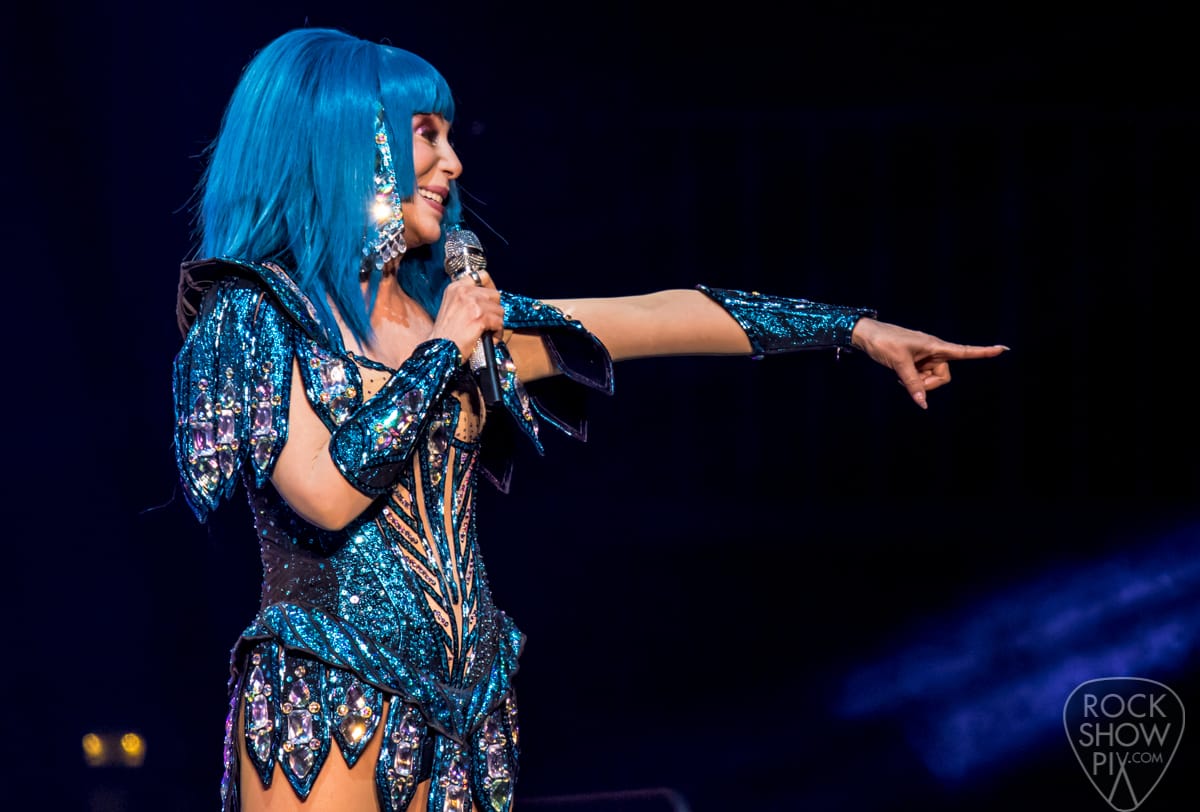
When it comes to capturing the moment but also being a participant in the concert, I'm curious to hear your thoughts on people recording concerts on their phones.
I hate it. I hate it. Listen, I do it. I don't record the whole thing. If you have a favorite song or there's a certain thing — you're with your friends, you want to capture that — I'm all for it.
But nine times out of 10, nobody looks back at that content. You're paying all this money to go to a show and then you're watching it on a three inch screen.
I've also gone to shows like Tool, notorious for no photography. If your phone comes out of your pocket, you're getting thrown out. You're more engaged, you're more engaged with the people around you and it adds another element to the show.
But again, listen, if you want to take a couple of pictures, I'm all for it. I do it. Even when I go to shows as a fan, I'll find myself wishing like, 'Oh, my gosh, that would have been a great picture!'
Taylor Swift last year was insane. The whole show people were just looking at their phones and I'm like, 'You spent so much money and so much effort to get here and you're so excited. Just take it all in and appreciate it.' The level of production and work that goes into it I feel is lost if you're not watching it through your eyes.
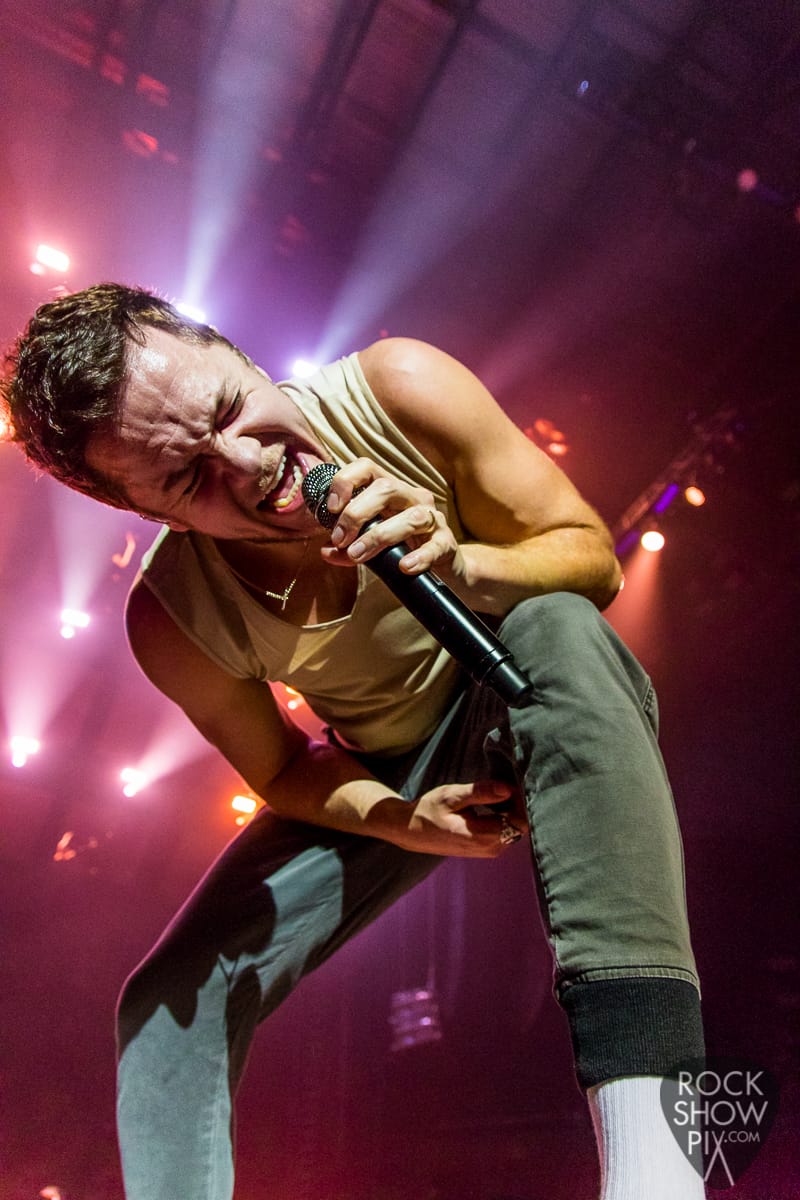
If someone does take a few photos during a show, what are some quick and easy photographer tips they can use to get somewhat of a decent shot?
Don't use your flash. I'm a big fan of non-flash photography, and most of the times the shows are bright enough that you don't really need it.
iPhone or Android, touch the screen, pull your levels down and make sure it's not overexposed.
Then just have fun. It's all about having fun. You're there to enjoy yourself, so you don't have to necessarily get a crystal clear shot.
What has been a highlight of your career thus far?
I got to photograph Tom Petty a week and a half before he passed away, and I still get the chills when I think about it.
It was in Boston, he was doing two nights and it was the first night of the of the two-night show. He came out on stage and it was one of those moments where I was away from everybody else.
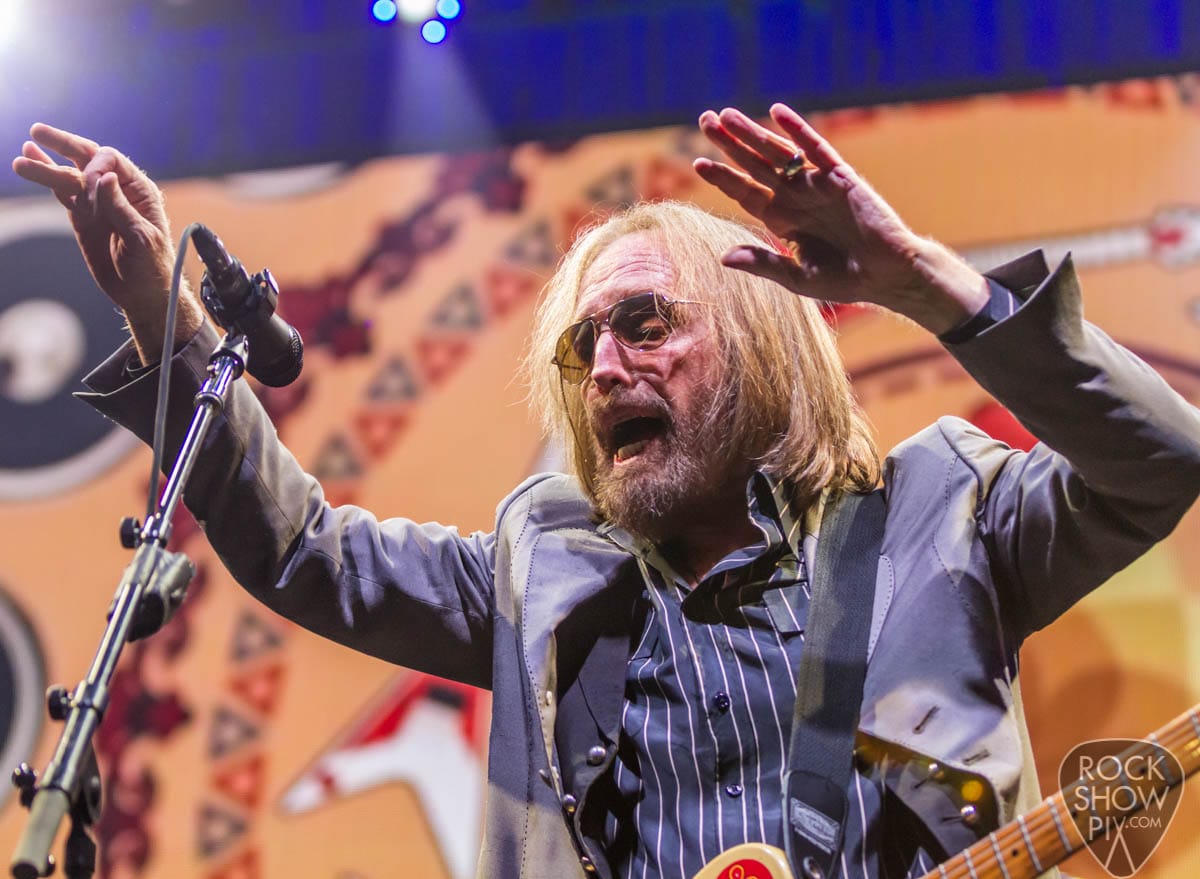
Tom walked up to me, right in front of me, and looked down and started playing and cracked a smile and I got the picture. I actually put my camera down for a second and I just stood there.
A couple of minutes later, I got another great picture with him and his guitar player, Mike Campbell. They had this great moment together on stage and I captured that picture and that was one of those moments where I looked at the picture and I went, 'All right, I'm done. I don't need to take any more pictures, I got what I wanted.'
Then a couple of weeks later [Petty] passed away, and I was looking through the pictures and I could feel and see the pain in his face in one of my pictures. You could tell he was kind of he was powering through it.
Does the genre of music impact the type of photo that you want?
I cater to the to the show.
I've got a couple different kits that I use. It's all dependent on kind of how you feel too. I try to get a little bit of everything and give a good perspective: the overall view and then some uptight, close shots of either the artist or their guitar or amp.
I've started to get into the equipment a little bit more, seeing how different artists use different drum kits or guitars and keyboards.
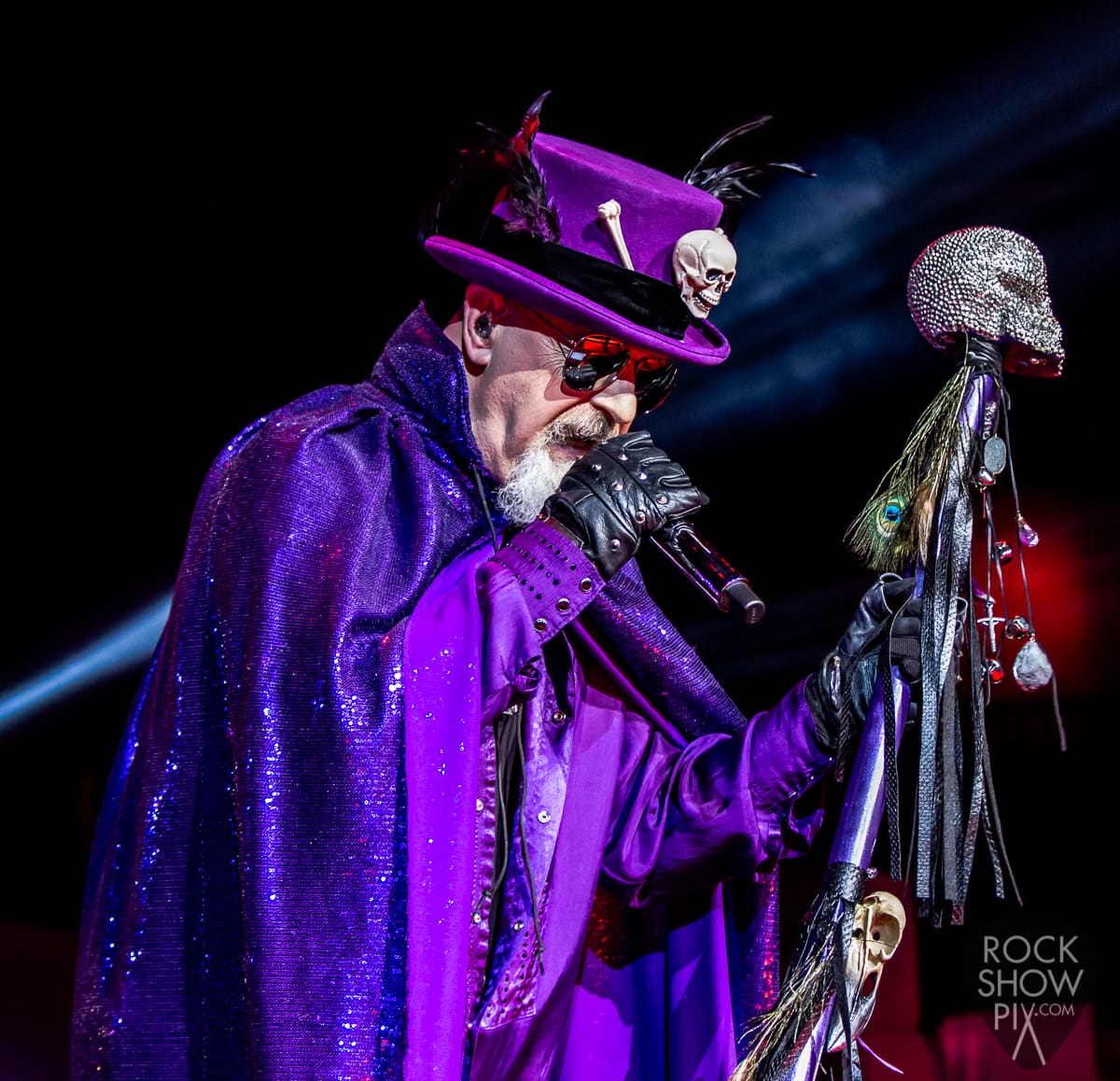
What's a good camera to start out with for an amateur photographer?
Any camera, it doesn't matter. It can be a point-and-shoot, it can be anything. Just play with it and learn how to use it.
The lenses are the more important thing when you get into it — that's really where you should spend your money.
I have a little point and shoot that I bring to shows because I can get some great shots with that. But I've played around with it. I've taken a thousand photos playing with the shutter speed and the aperture and the light balances.
Even the cell phones, if you go into manual mode and just learn how they work. I think that's really the key to to getting getting better at at taking pictures, especially at shows, because every show is different. You can have movable LED lights or changing backdrops, so it's really it's important to learn and to know how to operate it more than specific hardware.
If you're into photography or you like taking pictures, don't be scared to just take bad pictures, because that's how you get better. I still take bad pictures a lot — it happens.
Every show is a learning experience.
Seth Shapiro is on Instagram and Facebook. You can also visit his website.

